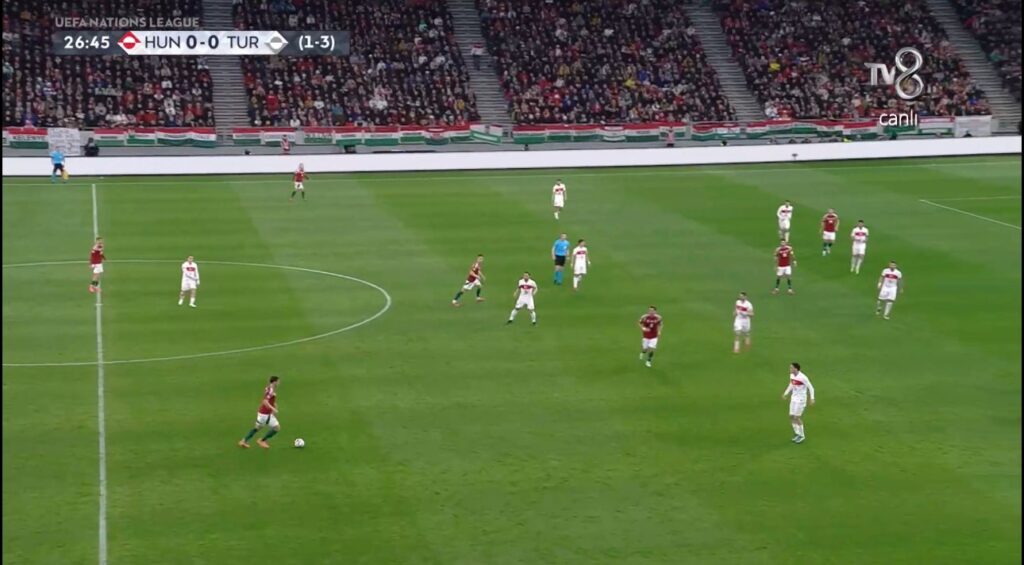Illegal Betting Ads Disrupt Türkiye’s National Match Broadcast Against Hungary
By Erdem / 01/04/25
 In a striking example of the challenges posed by international advertising regulations, the UEFA Nations League playoff match between Türkiye and Hungary was broadcast with significant alterations by Turkish channel TV8. The channel opted for a delayed, single-camera feed to prevent the display of stadium-side advertisements deemed illegal under Turkish law.
In a striking example of the challenges posed by international advertising regulations, the UEFA Nations League playoff match between Türkiye and Hungary was broadcast with significant alterations by Turkish channel TV8. The channel opted for a delayed, single-camera feed to prevent the display of stadium-side advertisements deemed illegal under Turkish law.
TV8‘s decision stemmed from concerns over potential fines for airing content related to unauthorized betting promotions. The broadcaster had previously faced penalties for similar issues during past international matches. To mitigate this risk, TV8 chose to limit the broadcast to a single camera angle and delay the transmission, effectively avoiding the problematic advertisements.
This approach, while legally prudent, compromised the viewing experience for fans. The absence of multiple camera angles and real-time coverage drew criticism from viewers, who expressed frustration over the diminished quality of the broadcast. Social media platforms were abuzz with complaints, highlighting the tension between regulatory compliance and audience expectations.
The incident underscores the complexities faced by broadcasters in navigating differing international advertising standards, especially concerning betting promotions. As countries like Türkiye enforce strict regulations against unauthorized gambling advertisements, broadcasters must balance legal obligations with the demand for high-quality sports coverage.
This situation also reflects the broader challenges within the global sports broadcasting industry, where technological solutions like Virtual Board Replacement (VBR) are employed to tailor advertising content to specific markets. However, such technologies are not foolproof, and discrepancies can lead to legal repercussions and viewer dissatisfaction.
As the intersection of sports, advertising, and international law becomes increasingly intricate, broadcasters and regulatory bodies must collaborate to develop solutions that uphold legal standards without compromising the integrity of live sports coverage.